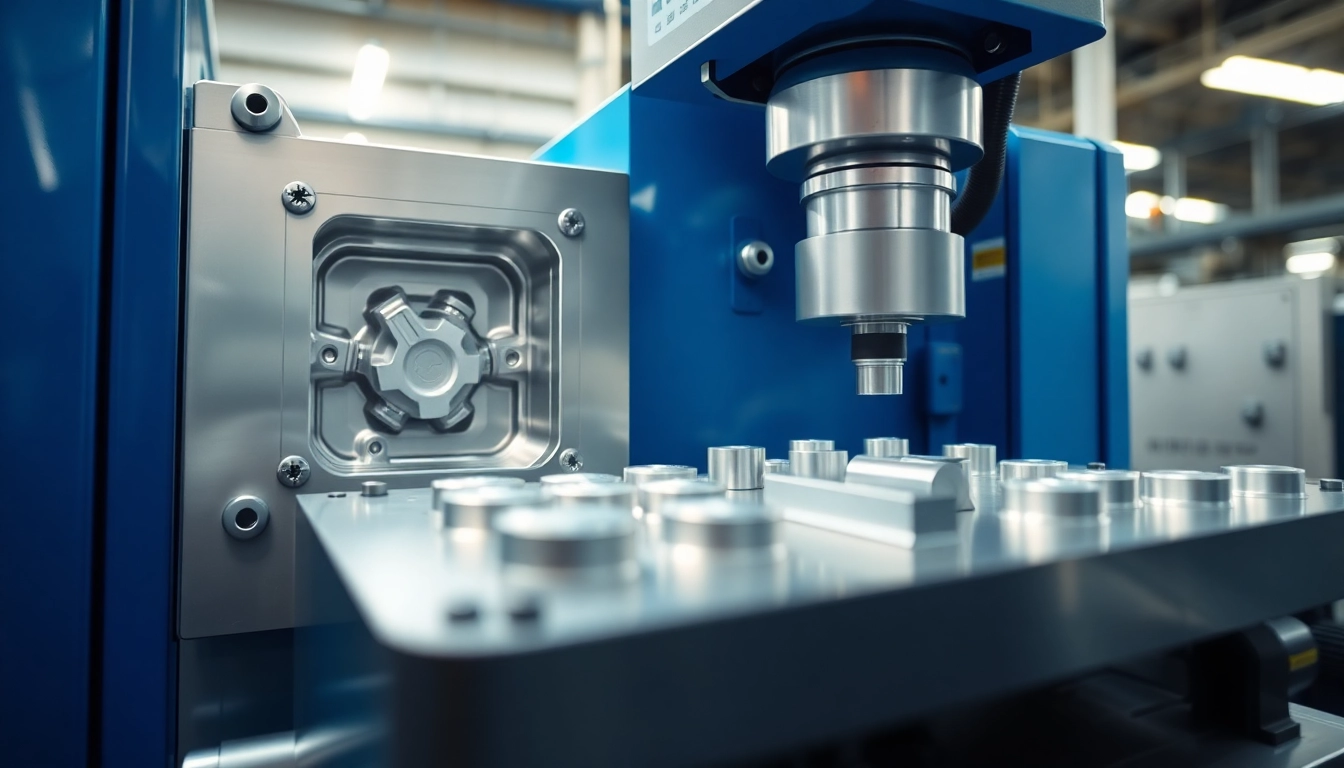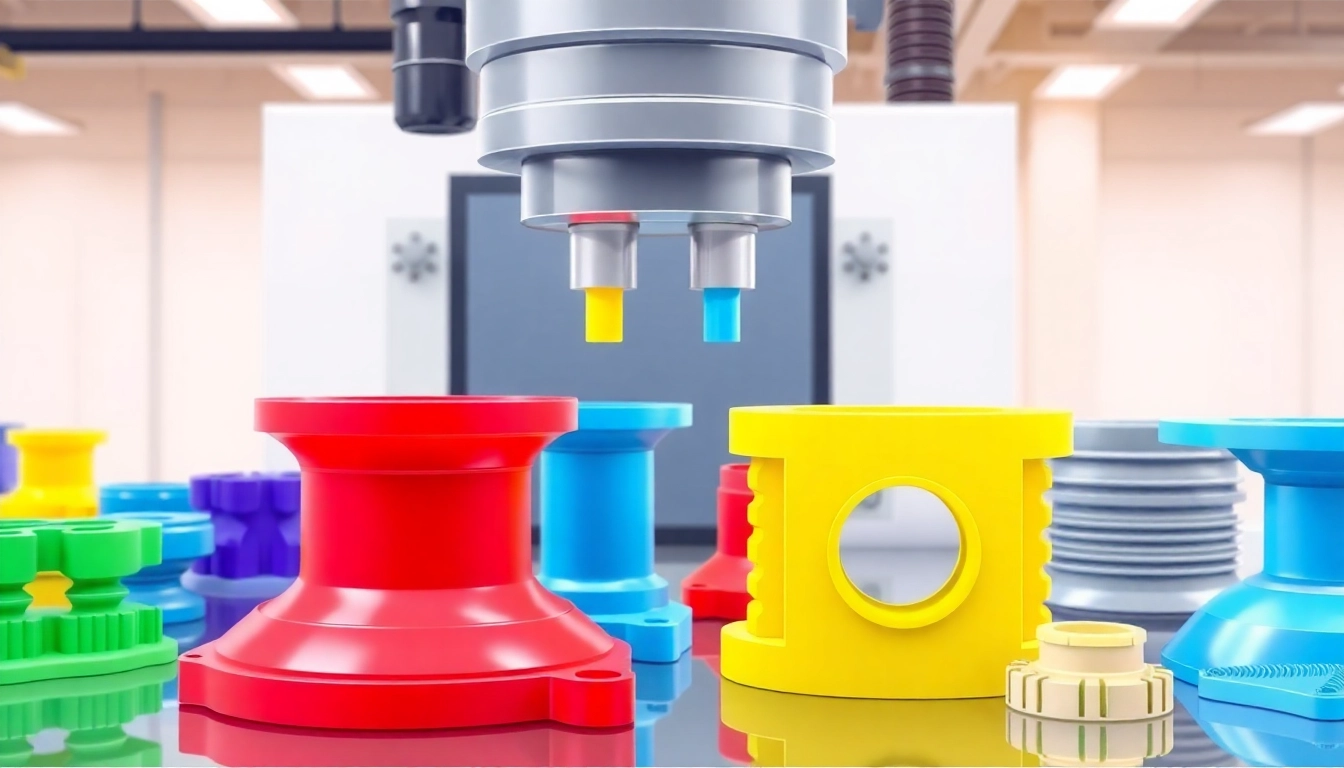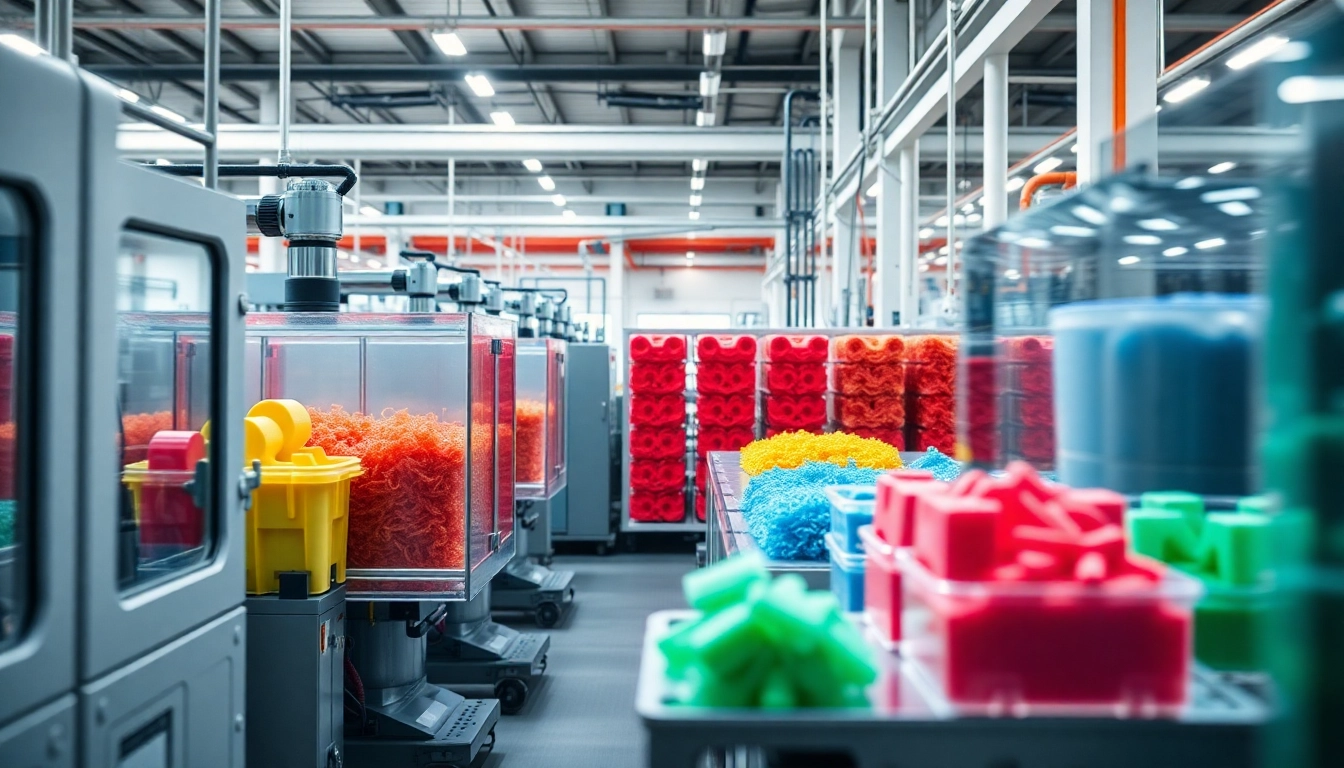Understanding Injection Molding: A Comprehensive Overview
What is Injection Molding?
Injection molding is a manufacturing process used to produce parts by injecting molten material into a mold. This method is commonly utilized for creating plastic components, which can be found in a wide variety of applications, from consumer goods to industrial machinery. The process begins with the plastic material, typically in pellet form, being fed into a heated barrel. Here, it is melted and then injected under high pressure into a precisely designed mold. Once the material cools and solidifies, the mold is opened, and the finished part is ejected. This rapid production capability makes injection molding a preferred choice for high-volume manufacturing runs.
The History of Injection Molding Technology
The roots of injection molding can be traced back to the early 19th century. The first patent for a plastic injection molding machine was granted to John Wesley Hyatt in 1872, which revolutionized how plastic products were made. Hyatt’s machine used a hand-operated plunger to force plastic into a mold. Over the decades, advancements were made in both materials and machinery. By the 1950s, the development of thermoplastics allowed for faster and more efficient production processes. Today, companies leverage cutting-edge technology, ensuring injection molding remains a cornerstone of the plastics industry.
Types of Injection Molding Processes
Injection molding processes have evolved to cater to different material types and production needs. Here are the primary types:
- Thermoplastic Injection Molding: Involves the use of thermoplastic materials that can be re-melted and remolded. This process is highly versatile, allowing for various designs and modifications.
- Thermosetting Injection Molding: Uses thermosetting materials that harden permanently after being molded. This method is ideal for creating durable products that require temperature resistance.
- Two-shot Injection Molding: Integrates two materials or colors in a single process to create complex designs. This is often used for components requiring different functional properties.
- Insert Molding: Combines metal or other materials in a single process with plastic injection, enhancing product strength and functionality.
- Blow Injection Molding: Used primarily for hollow parts, this method combines injection molding with blow molding to create products like bottles and containers.
Key Benefits of Choosing an Injection Molding Company
Cost Efficiency in Manufacturing
Investing in an injection molding company offers significant cost savings compared to traditional manufacturing methods. Because injection molding is automated and can produce large quantities of parts consistently, the cost per unit decreases as production volume increases. This efficiency allows companies to offer competitive pricing to their customers while maintaining quality standards.
High Precision and Quality Standards
Injection molding technology ensures high precision across various part sizes and designs. Modern injection molding machines are equipped with advanced computer controls that enhance the accuracy of the molding process. This high level of detail results in superior quality parts that meet stringent industry standards. Furthermore, the ability to create intricate designs without substantial cost increases makes injection molding an attractive option for product development.
Scalability for Production Needs
One of the most significant advantages of injection molding is scalability. Whether a company needs to produce tens of thousands of parts or merely a few hundred, injection molding can accommodate these requirements effectively. As market demand fluctuates, businesses can adjust their production schedules without the need for extensive re-tooling or process reconfiguration, ensuring a flexible manufacturing solution.
Essential Factors When Selecting an Injection Molding Company
Evaluating Company Experience and Expertise
When selecting an injection molding company, considering their experience and industry expertise is crucial. Companies with a proven track record are more likely to provide high-quality products and services. Look for information regarding the company’s history, client portfolio, and any certifications or industry awards they may have received. Engaging with an experienced partner can save time and resources throughout the project lifecycle.
Assessing the Technology and Equipment Used
The technology and equipment employed significantly impact the quality of moldings. Modern injection molding machines come equipped with smart technology, allowing for real-time monitoring and optimization of the process. Assess if the company is investing in the latest advancements in machinery, as this can enhance production efficiency and maintain high-quality output.
Understanding Material Capabilities and Limitations
Different injection molding companies specialize in various materials. Understanding the material capabilities and limitations of a prospective partner can help ensure that they can meet your unique project requirements. Some companies may excel in using specific plastics, while others might offer a wider range of materials, including bio-based and recycled options. Ensuring compatibility between your design needs and the company’s expertise is key to achieving optimal results.
Innovative Techniques in Injection Molding
Advancements in Material Science
Recent advancements in material science have significantly influenced injection molding processes. The development of high-performance polymers and composites has expanded the application range of injection molding, allowing manufacturers to produce lighter, stronger, and more durable parts. Innovations such as nano-reinforced materials also promise to enhance the mechanical properties of molded products, making them suitable for demanding applications in industries such as aerospace, automotive, and healthcare.
Sustainable Practices and Eco-Friendly Options
With increasing awareness of environmental issues, many injection molding companies are adopting sustainable practices. This can include using recycled materials, implementing energy-efficient production methods, and reducing waste during the manufacturing process. Companies that prioritize eco-friendly options can help their clients meet sustainability goals, which can be a differentiator in the competitive marketplace.
Automation and Smart Manufacturing Solutions
Automation has transformed the injection molding industry, enhancing precision and efficiency. Smart manufacturing solutions that incorporate IoT devices enable continuous monitoring and data collection throughout the production process. This technology allows manufacturers to predict maintenance, reduce downtime, and optimize production schedules. The shift towards industry 4.0 also presents numerous opportunities for integrating advanced artificial intelligence and machine learning techniques into injection molding practices, leading to further improvements in quality assurance and production efficiency.
Future Trends in the Injection Molding Industry
Emerging Technologies Impacting Injection Molding
The future of injection molding is being shaped by emerging technologies such as additive manufacturing, which offers alternative methods for creating complex geometries. Additionally, advancements in 3D printing technologies are complementing traditional injection molding by enabling rapid prototyping and small-batch production runs. As these technologies continue to advance, they may reshape how companies approach product design and development.
The Role of AI and Machine Learning
Artificial intelligence and machine learning are increasingly becoming integral to optimizing injection molding processes. By analyzing vast amounts of production data, AI can identify patterns and suggest adjustments that lead to improved quality and efficiency. These capabilities can help mitigate defects, reduce material waste, and enhance overall performance metrics, positioning companies for greater success in a competitive landscape.
Global Market Outlook for Injection Molding Companies
The global injection molding market is poised for substantial growth, driven by the rising demand in end-use industries such as automotive, healthcare, consumer goods, and electronics. Companies that embrace innovative technologies and sustainable practices are likely to gain a competitive edge. Market research indicates ongoing investments in automation and smart manufacturing will lead to improved resource management and reduced costs, thereby making injection molding an increasingly attractive option for manufacturers around the world.



